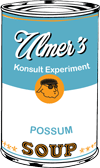Existential Disaster: Pasolini
White transparent blind. The Italian auteurist film director and semiotician, Pasolini, outlined a theory of education that is electrate, with its emphasis on the formative importance of early childhood, (the Paleo) as foundation for the other popcycle educations. Before parents, school, or television, Pasolini insists, your educative sources “are dumb, material, objective, inert, merely present. And yet they have their own language which you, like your companions, can decipher extremely well. I am speaking of objects, of things, of the physical reality that surrounds you.” Pasolini’s education is of the same sort Blanchot associated with the writing of the disaster (the existential epiphany of his childhood window). The wide image comes out of such conditions, relevant also to the phenomenon of transitional objects interfacing inner/outer experience in a child/mother interaction (object relations).
Our first memories are visual ones. In memory life becomes a silent film. We all have in our minds an image which is the first, or one of the first, in our lives. That image is a sign, or to be exact, a linguistic sign. So if it is a linguistic sign it communicates or expresses something. I shall give you an example. The first image of my life is a white, transparent bind, which hangs–without moving, I believe–from a window which looks out on to a somewhat sad and dark lane. That blind terrifies me and fills me with anguish: not as something threatening and unpleasant but as something cosmic. In that blind the spirit of the middle-class house in Bologna where I was born is summed up and takes bodily form. Indeed the images which compete with the blind for chronological primacy are a room with an alcove (where my grandmother slept), heavy “proper” furniture, a carriage in the street which I wanted to climb into. These images are less painful than that of the blind, yet in them too there is concentrated that element of the cosmic which constitutes the petty bourgeois spirit of the world into which I was born. But if in the objects and things the images which have remained firmly in my memory (like those of an indelible dream) there is precipitated and concentrated the whole world of “memories,” which is recalled by those images in a single instant– if, that is to say, those object and those things are containers in which is stored a universe which I can extract and look at, then, at the same time, these objects and things are also something other than a container. . . . So their communication was essentially instructional. They taught me where I had been born, in what world I lived, and above all how to think about my birth and my life. Since it was a question of an unarticulated, fixed and incontrovertible pedagogic discourse, it could not be other–as we say today–than authoritarian and repressive. What that blind said to me and taught me did not admit (and does not admit) of rejoinders. No dialogue was possible or admissible with it, nor any act of self-education. That is why I believed that the whole world was the world which that blind taught me: that is to say, I thought that the whole world was “proper,” idealistic, sad and skeptical, a little vulgar–in short, petty bourgeois. (Pier Paolo Pasolini, Lutheran Letters, trans. Stuart Hood. Carcanet Press: New York, 1987).
As may be inferred from the accumulating citations and references to Holton, Blanchot, Pasolini, Proust, and numerous examples of early childhood memories grounding the popcycle, the original aspect of konsult pedagogy is to recover, retrieve, this early education. By the time egents reach the age of five they have earned their visceral Ph.D.
